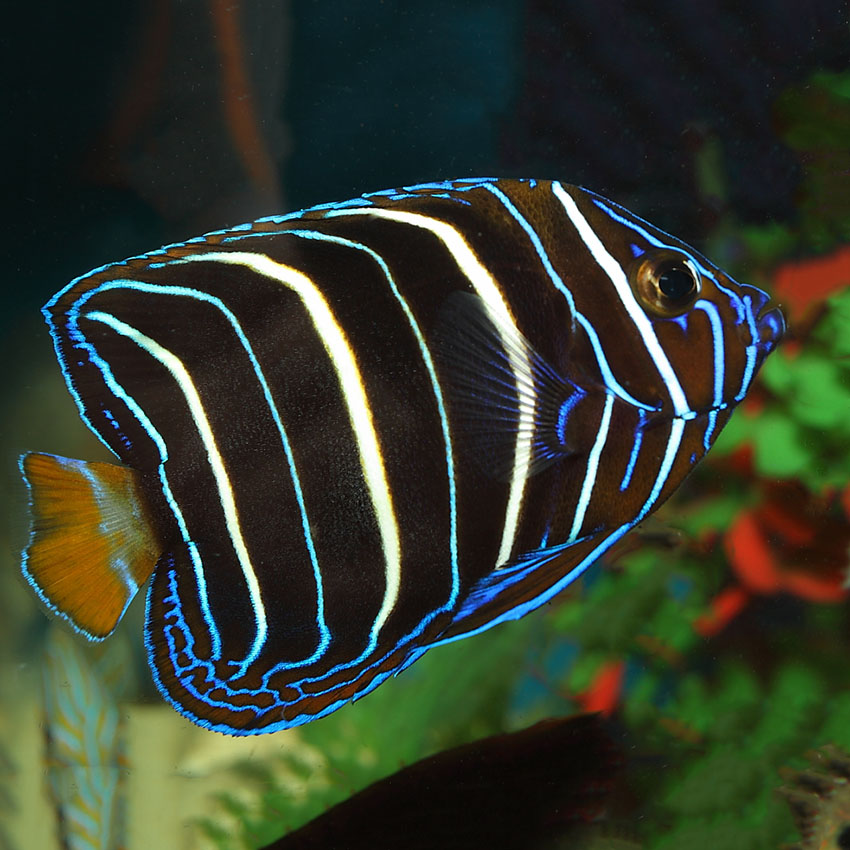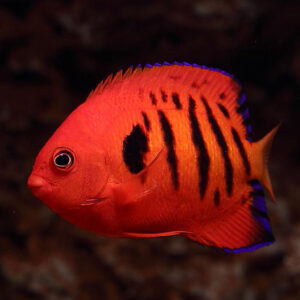Sub Adult African Angelfish, Pomacanthus chrysurus, also go by the name Ear-spot Angel or Goldtail Angel. Like many fish in this genus, adults and juveniles look different.
Juvenile African Angels have dark bodies, that highlight their bright blue and white stripes. Whereas, Adult African Angelfish have dark bodies. These show off thick white bands. Their heads are gold brown and adorned in sapphire blue stripes. The Adults have yellow eyes and a bright yellow caudal fin.
Large Angels are from the Pomacanthidae family. A group famous for their vivid colours. The name Pomacanthidae is Greek for, “cover” (poma) and “thorn” (akantha), which refers to the pair of strong spines on the gill cover.
African Angelfish Sub Adult, Pomacanthus chrysurus, Ecology.
As the name suggests, Sub Adult African Angelfish live around the African coast. From: South Africa, Madagascar, the Seychelles and the Gulf of Aden. Although they are not only around Africa. They also occur around Australia and Indonesia.
In nature, African Angelfish graze on sessile animals and algae. This makes them risky for marine tanks with coral, as they can nip. However, it may be possible to keep some carefully selected corals in the same tank as the Sub Adult African Angel. We ask you consult a member of staff if you want for details.
Ear-spot or Goldtail Angel: In the Aquarium.
It is important to have plenty of nooks or crannies where your Sub Adult African Angelfish can explore and feel at home. Keepers may also want to get a jump guard to stop any accidents.
Sub Adult African Angelfish do best when fed a varied diet. They will accept frozen Mysis shrimp and frozen brine shrimp. We enrich all our frozen food with seachem garlic guard and Atvitol vitamins. These are great for keeping fish healthy by providing them with the nutrition otherwise lost in frozen food. In doing so, these additives boost their immune system and increase their lifespan.
Sub Adult African Angelfish will graze on marine algae that can be stuck to the side of the tank with clips. Over time they will eat high-quality pellet or flake. We adapt all our Angel Fish to aquarium life before they leave us. We focus on their health, and most are eating a good quality flake food and/or pellet before being offered for sale.
Angelfish can be kept in a mixed group or alone, feel free to give us a call with any questions.





Reviews
There are no reviews yet.